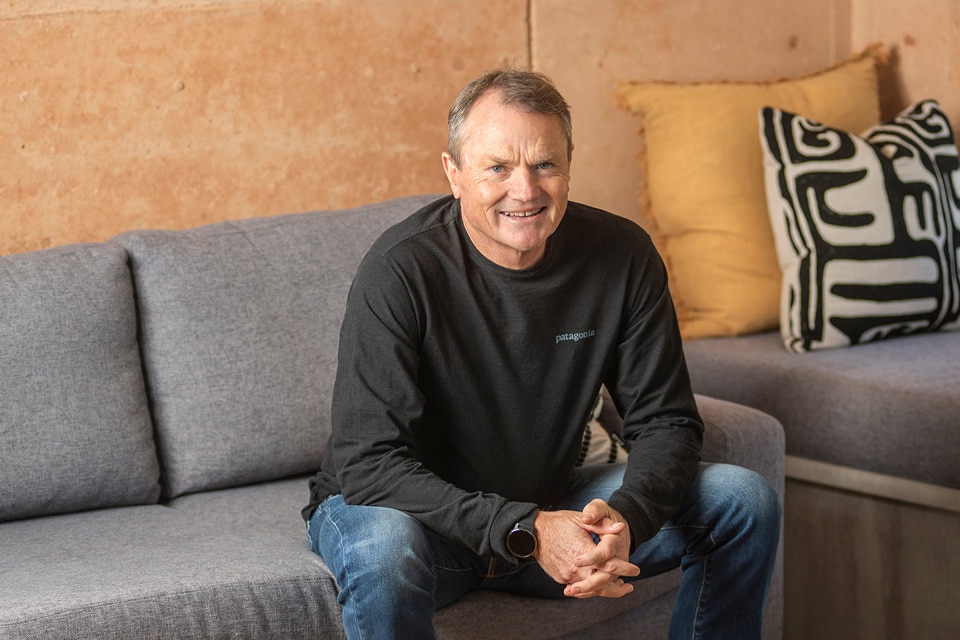Business owner overwhelm & what you can do to stop it

Small Medium Enterprise (SME) is used to describe the dimension of businesses. However, the characteristic that I think truly defines SMEs is the big overlap between ownership and leadership. SME Owner-Leaders supply the vision and working capital for the business, while also being critical to operations.
SME Owner-Leaders are the silent heroes of our economy. You take risks to establish a business with very limited support. In my experience of supporting SME Owner-Leaders, I have found a pattern. Many feel overwhelmed, anxious or stuck.
In my own owner-leader journey, I had this feeling many times. In the year 2000, in the formative years of acQuire, we had to invest a lot of funds into building software. This led to Debbie (my wife) and I extending our house mortgage to cover paying our people. This was an anxious time because I needed to support team morale, while dealing with my own anxiety.
This problem for owner-leaders is supported by the data in the 2023 AICD article, Mental health and well-being in SMEs. The article states that in a survey of 1000 SMEs 44 per cent have experienced anxiety and 55 per cent feel responsible for the mental health and wellbeing of their staff. Almost two thirds (61 per cent) believe they could do more to improve their mental health and wellbeing.
There is an open-source behavioural model called above the line, below the line. This helps conceptualise behaviours. Above the line refers to being calm, creative and energetic. Below the line refers to being anxious, overwhelmed, tired or stuck.
As you build your SME, you begin to understand there is a growing accountability that is always with you. You carry the responsibilities for the customers, the employees and the existential threat of making a loss. This can lead to operating below the line. This often leads to poor decision making because you become highly reactive not proactive.
Moving from reactive to proactive
Succession thinking is a way of building a business where the SME Owner-leader(s) and the business are above the line. I use the above the line/below the line model to describe my experience as a game of snakes and ladders. As you navigate uncertainty, you will take a snake at times and end up below the line. Imagine if you had access to ladders for you (and our business) to we get back above the line. If you can do some proactive work, you can mitigate some of the risks when taking a snake. Not only this you may be able to avoid snakes.
As an SME owner-leader you began your business by being highly proactive. To make the decision to make something from nothing is very proactive. As your business grew around you, your operational demand grows. You become very good at cranking transactions and getting the next task completed. As this grows your time for proactive thinking is whittled away. You have no time to do the big thinking required to keep you and your business above the line.
To become proactive again is a difficult thing to do. It is very difficult to change our current habits of picking up the phone and checking the last text/email/social media post. However, the establishing of new habits or decommissioning some bad habits is the first step. I state that the first principle of succession thinking is to Seek Role Clarity. I believe that you need to reconnect with the role of Owner and the accountabilities associated with this role. As an owner you might think it is not a role but simply a place to hold the share capital of your business. It is a role and an important one. This role makes the big decisions. The following is a set of questions an owner will want answers to:
- Do I want to sell my business or build for the long term?
- If I am building for the long term what are my future ownership options?
- If I want to sell my business, what do I need in place to make this successful?
- What are the components that impact the valuation of my business?
- What would the impact of a sale be on my employees and customers?
To have the time to do the work to answer these questions, you need to start somewhere. I believe that engaging with succession thinking, to build and steward your SME, is that starting point.
Written by Bill Withers.
Have you read?
World’s Best Countries To Invest In Or Do Business.
World’s Most Startup-Friendly Countries.
World’s Best Countries For Quality of Life.
Largest Economies Europe In 2024.
GDP of the BRICS countries (2000 to 2028).
Bring the best of the CEOWORLD magazine's global journalism to audiences in the United States and around the world. - Add CEOWORLD magazine to your Google News feed.
Follow CEOWORLD magazine headlines on: Google News, LinkedIn, Twitter, and Facebook.
Copyright 2025 The CEOWORLD magazine. All rights reserved. This material (and any extract from it) must not be copied, redistributed or placed on any website, without CEOWORLD magazine' prior written consent. For media queries, please contact: info@ceoworld.biz








